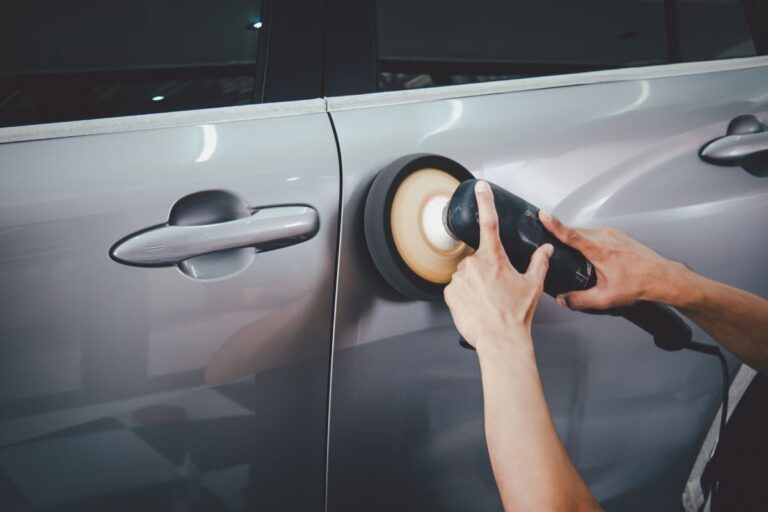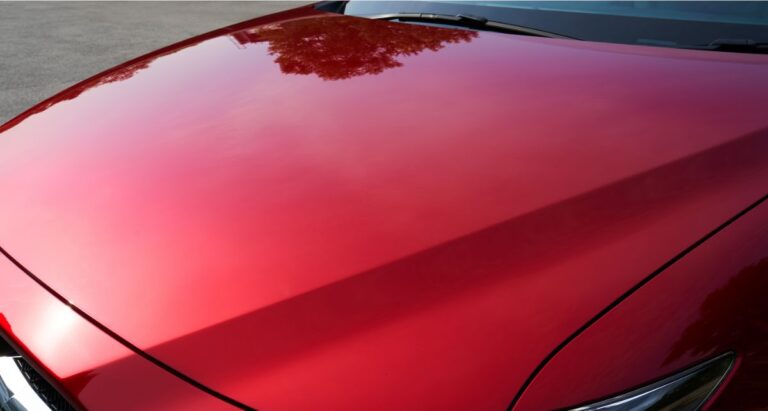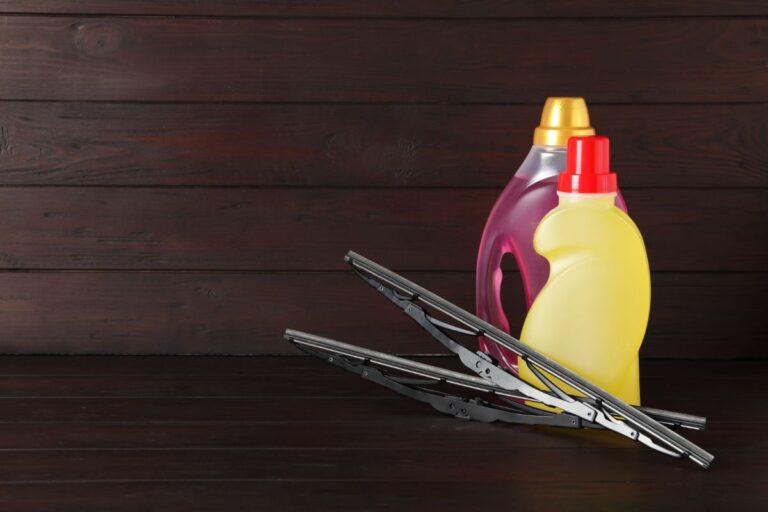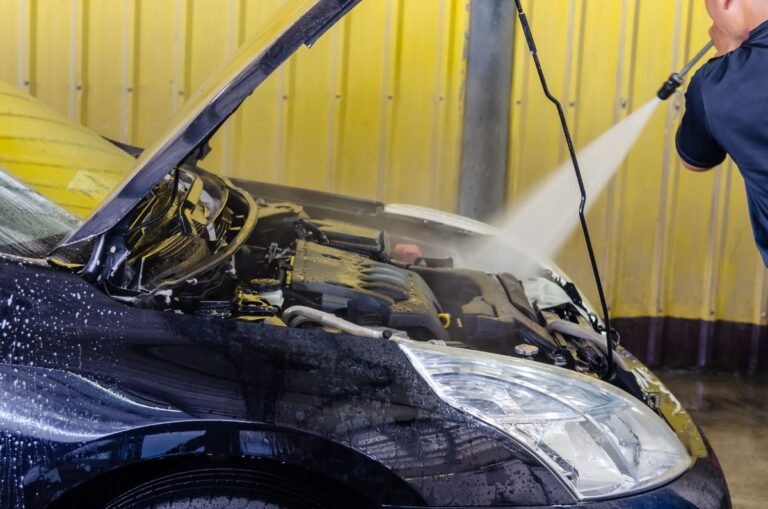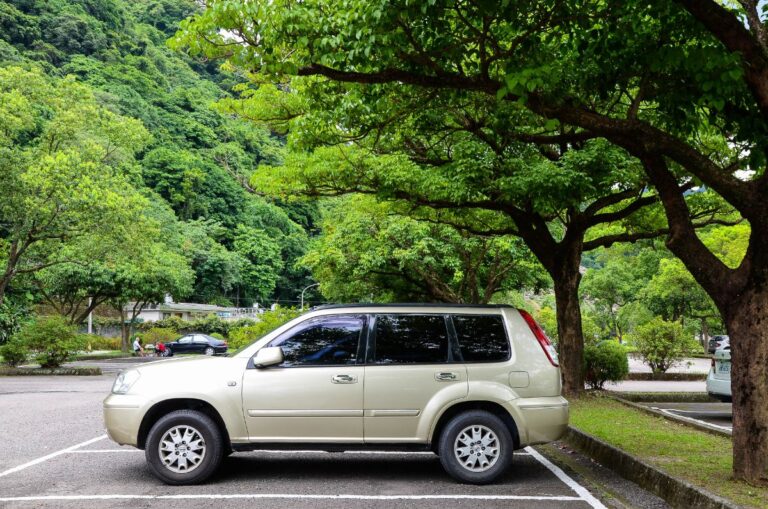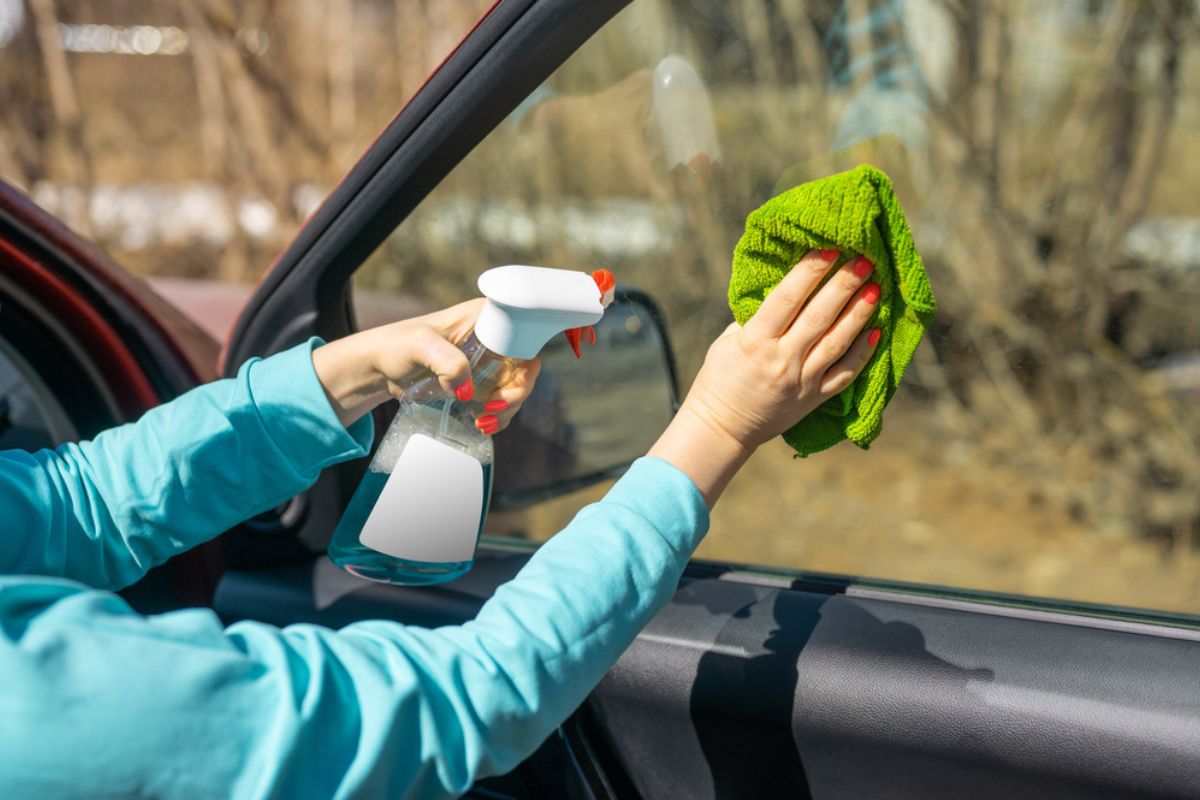
When you live in the South, chances are pretty good that you live on a dirt road. I’m no fan of them in the summer, but they do have their advantages in winter. The dust has to have somewhere to go, though, so it ends up on your car.
Carwashes do a booming business in the South. Lots of people hose down their cars in the yard and then wash them. They use soaps, professional car wash, or cleaners they find in the house.
The trouble is that people use the wrong things to clean bird stuff, bugs, and other crud off their cars. Things like Windex might clean off the crud, but it damages the paint on your car. Here’s why.
Windex Is No More Than Watered Down Ammonia. What’s Wrong With Using That On Your Car?
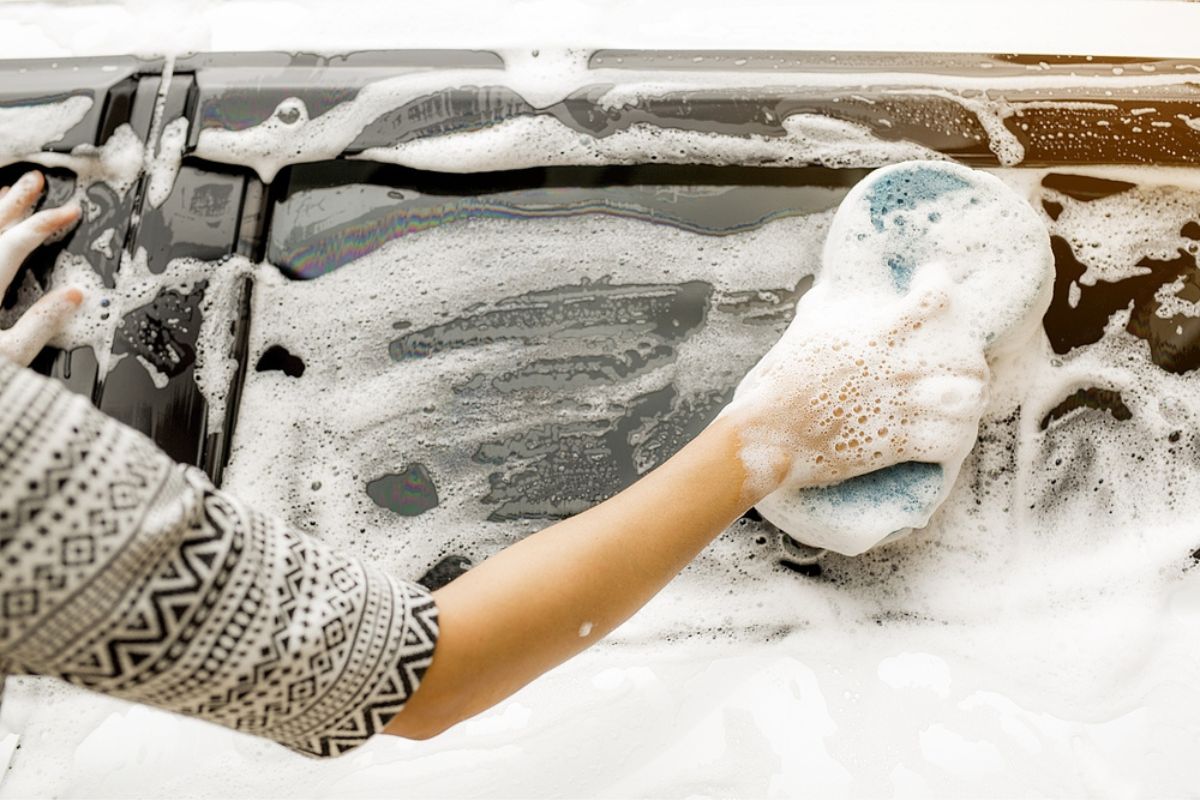
Windex is not watered down ammonia. Cleaning products of many types contain cleaners or surfactants (notice that the root word there is “surface”) that lift the dirt off the glass so it can be washed away. They contain mixtures of ammonia and water to a strength used with negatives in photography, refrigerants, and fertilizers.
There are ingredients in Windex used in shampoo and bubble baths, along with household bleach cleaner. Another ingredient is used in cleaners and pesticides. Other ingredients are the dye that makes Windex blue and dispersing agents to carry away the crud.
If you look up all those unpronounceable twelve-syllable words, you’ll find that the harsh chemical makeup in them will, indeed, take off the crud from your windows. It will also take off the clear top coat from your paint. It will eat your paint so that it leaves the metal of your car vulnerable to rust.
What else should you know about Windex and cars?
But Windex Is Used On Other Painted Surfaces. Why Not Use It On Cars?
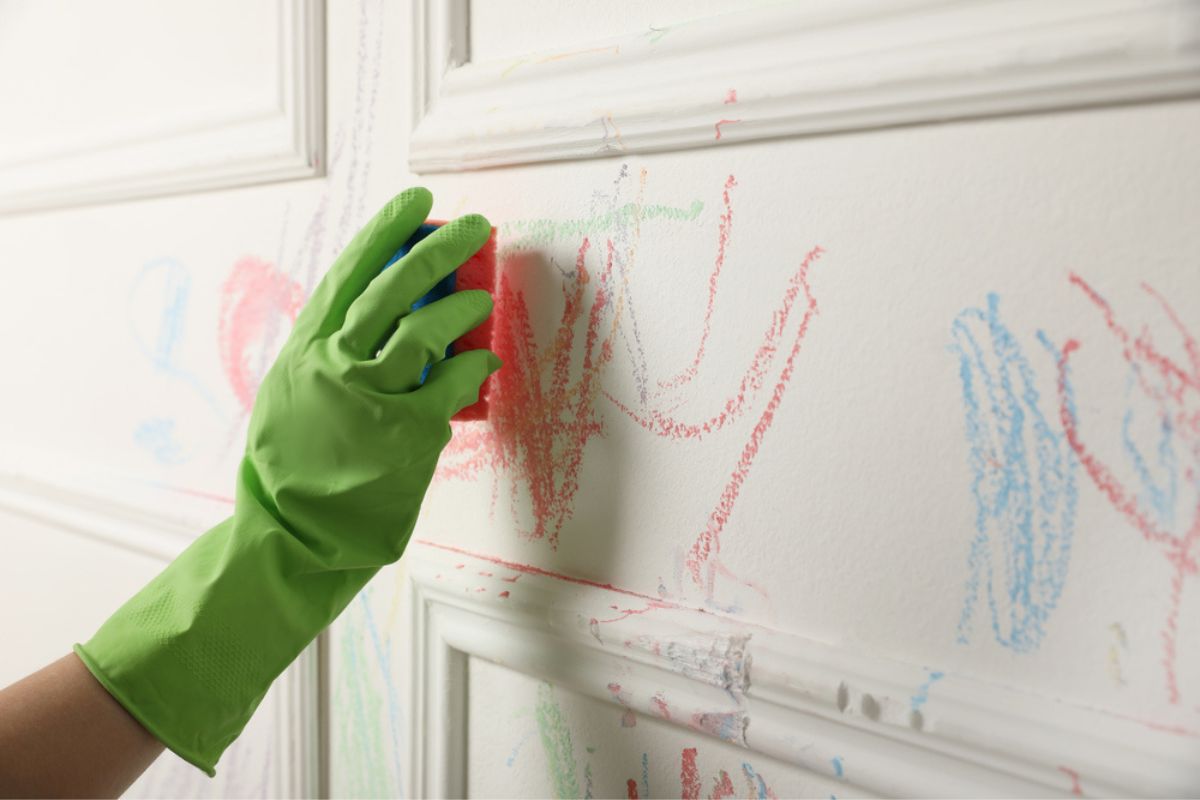
A quick shot of Windex and an equally quick wipe-down won’t harm the paint on the wall from which you’ve just removed a crayoned masterpiece. That’s because, for the most part, wooden walls in a house are sanded and primed before a couple of coats of paint are applied. The paint is either oil-based or water-based.
How Does Windex React On House Paint?
Most houses use sheetrock for their walls, and it isn’t porous. When they’re painted, that’s it. House paint is formulated with only one thing in mind: painting sheetrock, wooden drywall, and the material on the outside of the structure.
Still, you’ll notice that spraying Windex on glass strips the glass of any dirt or crud. All it leaves behind is shiny glass. I, personally, wouldn’t use Windex on any kind of paint for fear I’d strip the paint off a surface.
I’ve used baking soda and vinegar in cleaning for many years with good results.
Why Is Car Paint Different From House Paint?
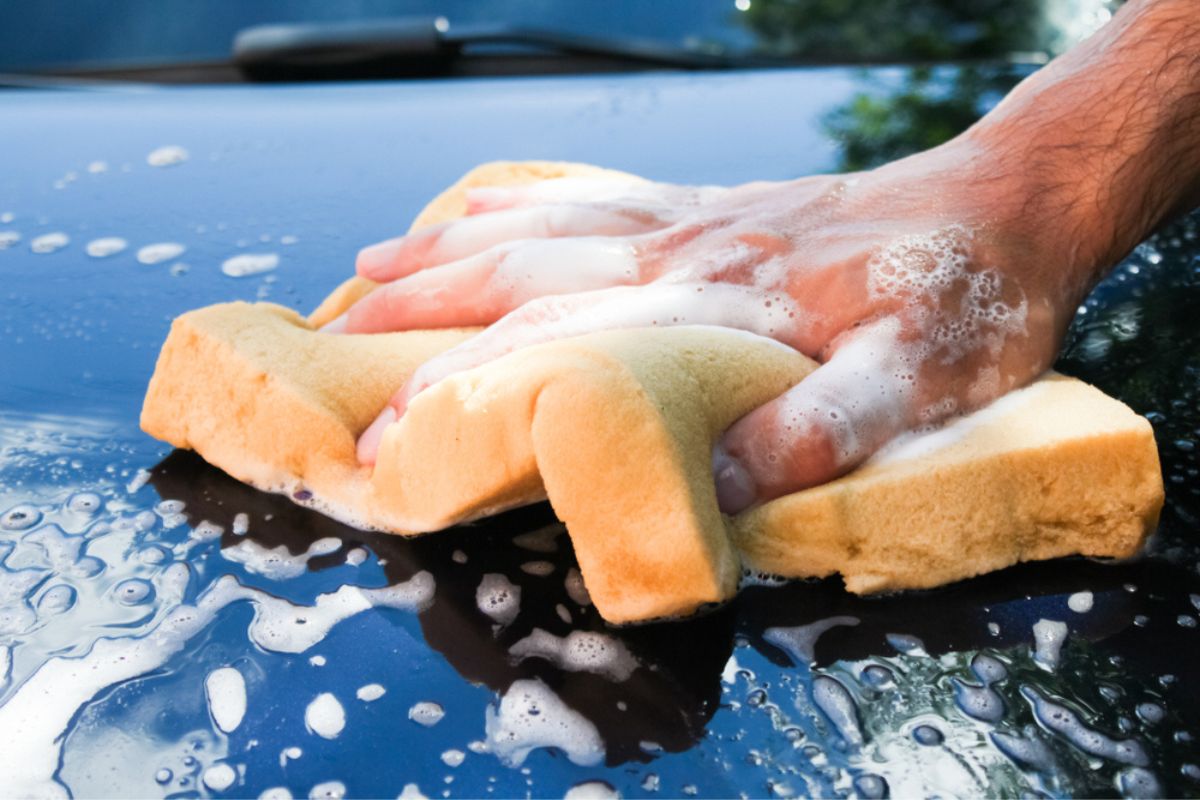
Car paint, on the other hand, is formulated especially for use on metal. It has to stand up to the damage from UV rays of the sun, some pretty extreme weather such as the damage from hurricanes or wind and sand storms, as well as everyday wear and tear. Car paint doesn’t just come in one type as house paint does.
Through the years, certain types have been popular but have failed to stand up to the pressures car paint has to withstand. Such paint is an acrylic lacquer that failed under UV ray exposure. Another was acrylic enamel, which dries too fast and is difficult to apply.
Add to this list the highly toxic acrylic urethane, around which you’d be well advised to wear the military’s chemical warfare suit. Those are just the paint types that were used in the past and given up for various reasons. Today’s car paints are water-based.
They take longer to dry and have to be used atop a coat of primer, but they stand up well to UV rays, weathering, and the vagaries of the drive-through car wash.
If I Can’t Use Windex To Clean My Car, Can I Use Dawn Dishwashing Soap? I’ve Heard It Gets The Dirt Right Off A Car
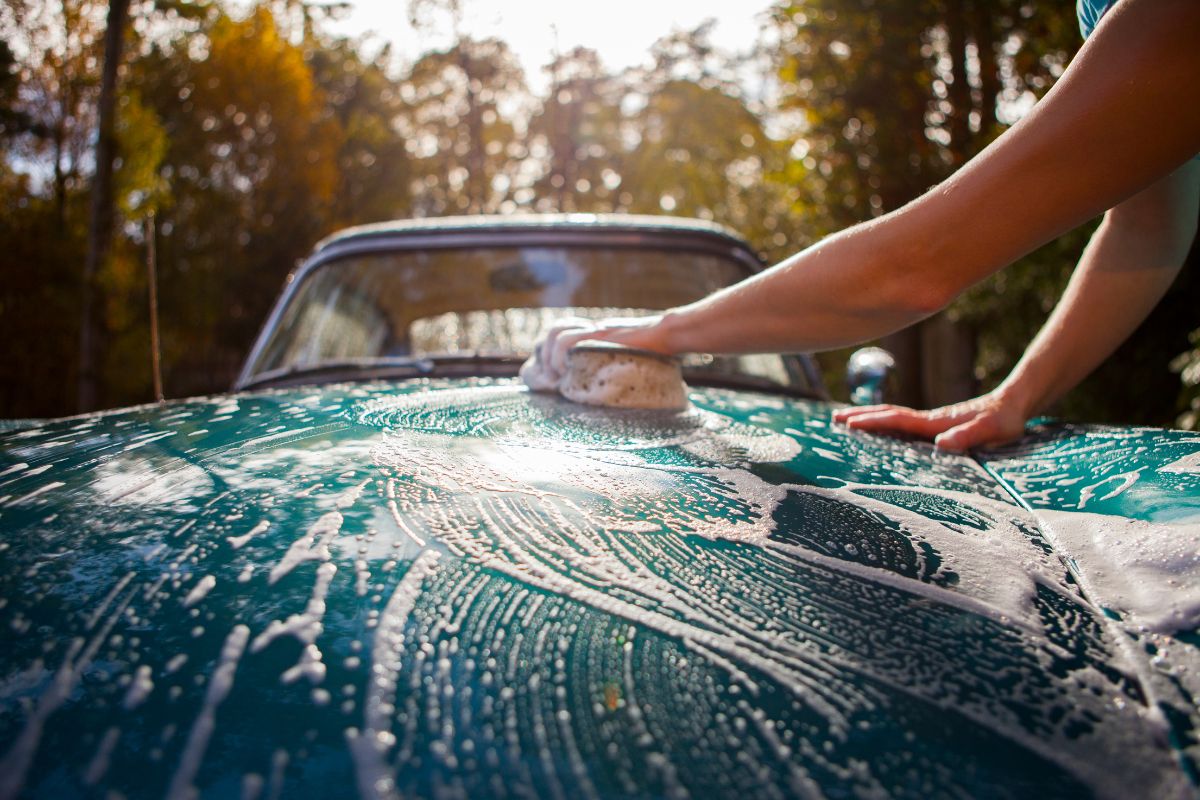
Dish soap, bathroom cleaners, floor cleaners, and other types of household cleaners were formulated to strip something of dirt, grease, soap scum, toilet crud, and other stains. Even shampoo at its mildest (baby shampoo) removes the oils we put on the baby’s head to prevent cradle cap. Why would you apply these dirt removers to the paint on your car?
Don’t use a household cleaner of any type. Use a dedicated car wash formula found at your local auto parts store. It’s no more expensive than household cleaners, and it’s guaranteed to clean your car without stripping the clear top coat or harming the paint.
Did You Know Glass Cleaners Weren’t Used In The First Car Washes? Did You Know They’re Not Used Now, Except In Full-Service Car Washes?
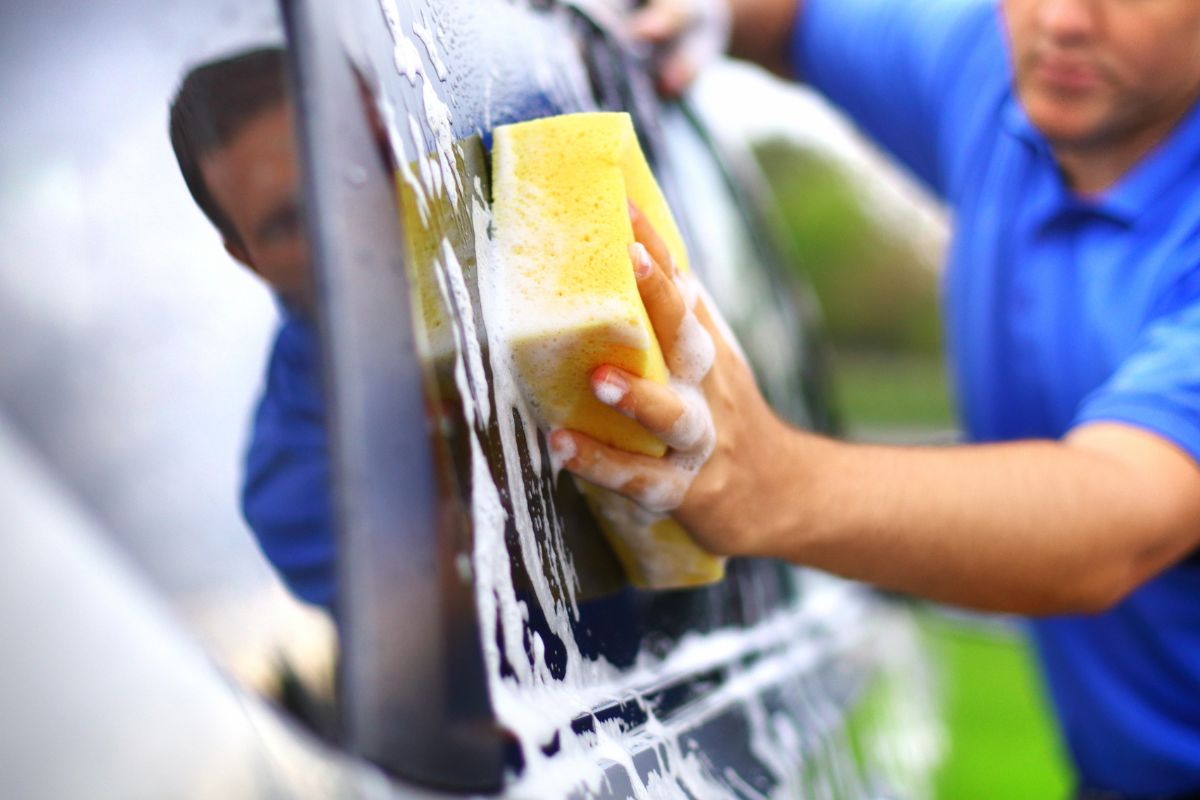
When the first cars were manufactured, it became clear that they would need cleaning. The very first carwash in, no surprise here, Detroit consisted of a car being pushed through a tunnel. The men in the tunnel would wet, soap, scrub, rinse off, and hand-dry the car being pulled through the tunnel with a rope.
Glass cleaner never entered the picture. The automation of the car wash happened next in Hollywood in 1940. In this carwash, a winch pulled the car through the wash.
The car was wet, soaped, scrubbed, and rinsed off. When the car got out of the wash, men hand-dried the car. Again, glass cleaner wasn’t in the picture.
In the 1950s, full automation with a conveyor belt and driers was born, and the modern car wash was here to stay. Drivers would find that only with a full-service car wash were their windshields and windows cleaned separately, and it remains that way to this day.
Can You Use Windex On Car Paint (FAQs)?
If I Can’t Clean My Car With Windex, Is There A Non-Chemical Cleaner I Can Use?
Absolutely. If you don’t want to buy a commercial preparation like the all-natural Mrs. Meyers or Seventh Generation cleaners, then use castile soap like Dr. Bronners.
On What Parts Of A Car Can Windex Be Safely Used?
You can clean chrome, stainless steel parts, plastics, vinyl, and, of course, glass. Just be vigilant and don’t let the spray get on the car’s paint. Spray the Windex on a cloth for cleaning approved surfaces or use a cotton ball to get smaller areas clean.
Can I Use Vinegar To Clean A Car?
No. Anything acidic like vinegar will eat through the clear top coat and right into the paint. Not only will the car look dull, but the metal will be vulnerable to rust. Use the mildest soap specifically designed for washing cars or use an all-natural soap like castile soap.

